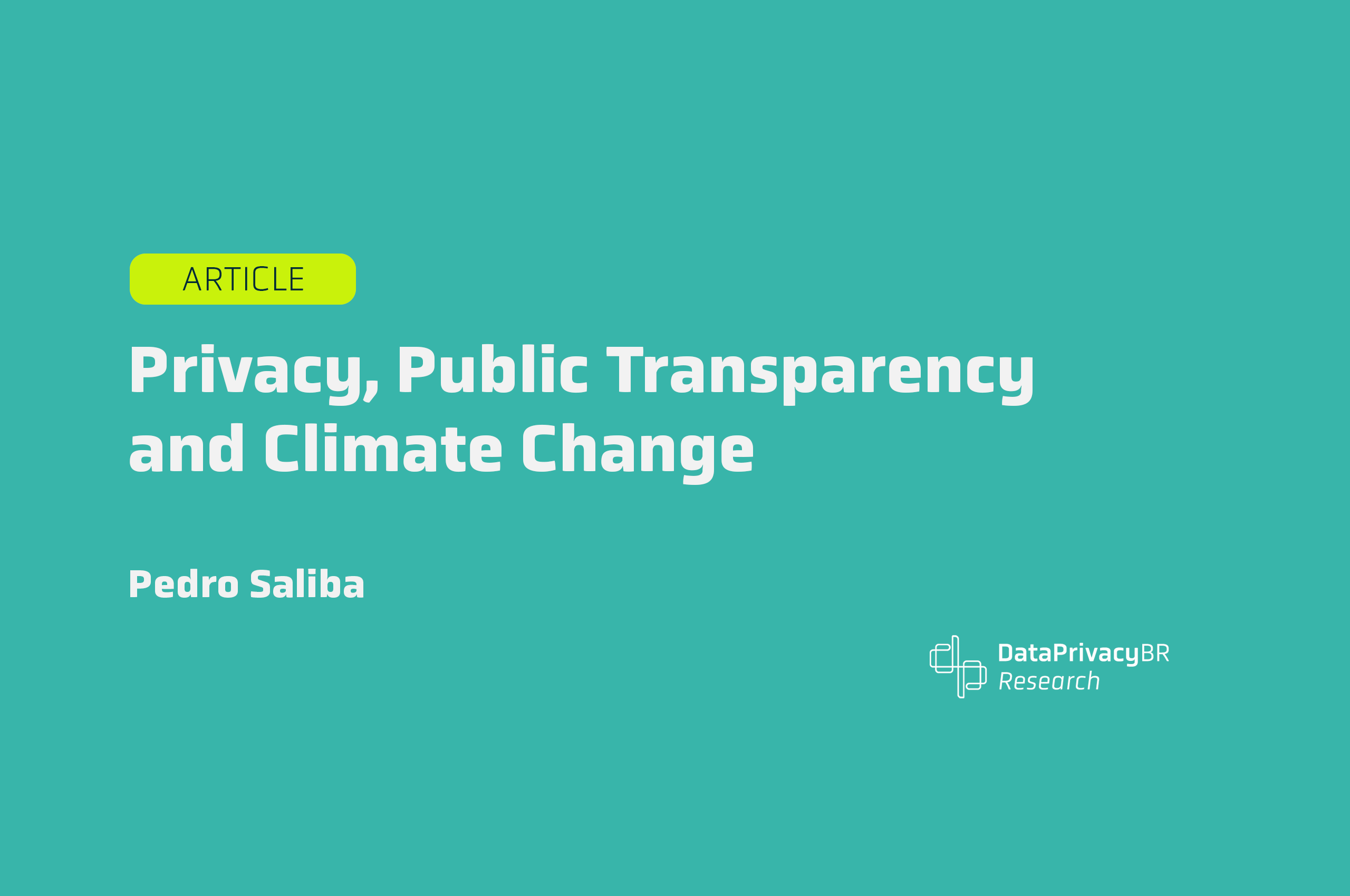Privacy, Public Transparency and Climate Change
How transparency and data protection can help environmental public policies in Brazil.
by Pedro Saliba, Project Coordinator, Data Privacy Brasil
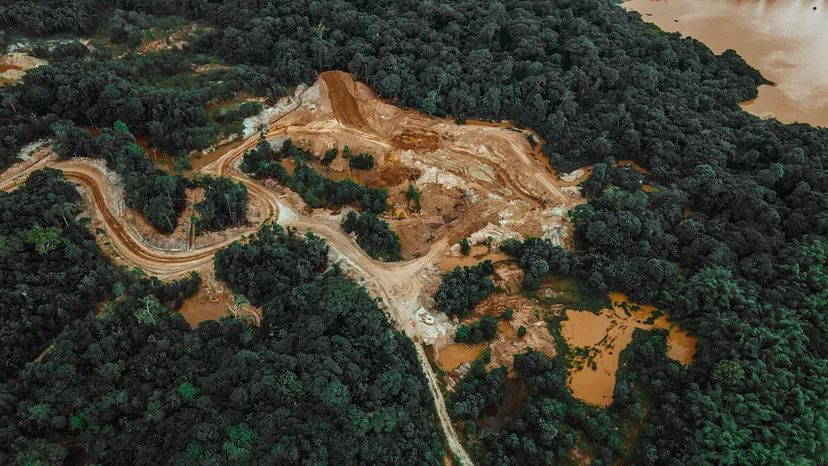
Brazil, marked by power imbalances and socioeconomic disparities, is currently navigating a complex landscape of public transparency and digital rights. The nation’s history, beginning with Portuguese colonization in 1500, includes mass slavery, indigenous genocide, and significant political and economic transformations. Emerging from nearly two decades of military dictatorship in 1988, Brazil entered a democratic era that ushered in substantial changes, particularly in the realm of access to information and digital rights.
The democratization process promised increased public transparency and the realization of social rights through comprehensive public policies. In this context, various entities such as civil society organizations, journalists, and researchers are actively engaged in collecting and processing data to uphold human rights, diminish inequalities, and safeguard individual freedoms. This text briefly outlines legislative milestones in public transparency while addressing the novel challenges introduced by digital technologies in environmental policies.
Public Transparency and Data Protection in Brazil
The 1988 Federal Constitution, promulgated after the military regime, has fundamental rights for public transparency. Article 5, item XXXIII guarantees that any citizen can receive information of their particular interest or of collective or general interest from public agencies.
This constitutional framework gained further strength in 2011 with the enactment of the Access to Information Law (Law №12,527/2011), delineating procedures for data requests and government decisions. This law marked a significant stride towards implementing open government plans, establishing mechanisms for citizens to request and obtain information from public entities.
Although not contradictory, the enactment of the Brazilian General Data Protection Law (LGPD) introduced new challenges to maintaining public transparency. Data protection became a pretext to limit access to information about the actions of the government. This was due both to fear of public servants violating the new legislation, and to the political instrumentalization of the law, selecting secrecy according to private interests.
These obstacles are felt in different areas, such as education, the electoral system and health. However, in the face of climate urgency, we have shown a special focus on how the misguided interpretation of data protection can lead to environmental damage.
Data protection and social control of environmental policies
Throughout 2022, a recurrence of cases was identified where the LGPD was used to block access to public data related to environmental regulation. Data Privacy Brazil conducted an extensive study based on FOIA requests to understand the legal arguments mobilized by public agencies to determine the confidentiality of information regarding environmental policies.
The project was based on 12 FOIA requests sent to the Brazilian Forest Service (SFB), questioning measures adopted to contain signs of deforestation in different areas. They were selected based on MapBiomas’ alerts, a collaborative network that uses satellite imagery to identify ambiental crimes. They also required the personal data of the land owners, an information that SFB holds within a public database called Cadastro Ambiental Rural (CAR), a national rural environmental registry.
Created by the Forest Code (Law n. 12.651/2012), the CAR has the express purpose of combating deforestation (art. 29). Even though the government has the personal information of landowners that are violating the environmental law, they chose not to share them. The refusal was focused exclusively on intimacy and privacy, stating that there would be risks to the honor of rural landowners.
The report demonstrates that there is legal feasibility for sharing CAR personal data, articulating constitutional rights to the LGPD, Access to Information Law and Forest Code. The active transparency of CAR data makes it possible to bring greater efficiency to environmental policies, economic development and human rights, being a common practice in different organizations and projects.
This information is essential to ensure social control and facilitate oversight of potential environmental violations, aiming to preserve not only lands that need protection but also the indigenous and quilombola communities living in these territories.
The analysis also showed asymmetries in the protection of personal data in different economic groups, indicating that settlers of land reform policies have greater exposure compared to rural property owners. Based on the report produced, Data Privacy Brasil works in a network with other organizations to ensure that information is open and public, facilitating social control of environmental policies.Furthermore, we have initiated a new phase to verify the compliance of Animal Transit Guides with the General Data Protection Law in Brazil. This document aims to certify the sanitary conditions in the transportation of animals in Brazil, but its secondary uses can assist in identifying deforested areas.By cross-referencing the Rural Environmental Registry and Animal Transit Guides, many organizations can trace the traceability of the beef supply chain in the country. The origin of animals is especially important in the Amazon, as livestock farming is one of the main activities contributing to deforestation.
Data protection as a vector for combating climate change
According to civil society positions, databases aimed at environmental monitoring, control, and inspection are essential to guarantee social control in various spheres: environmental (preservation of lands under legal protection), social (preservation of indigenous lands and territories of traditional peoples, as well as the search to reduce violence in rural areas), labor (in the face of hiring, illegal and even analogous to slavery by land grabbers), consumerist (allowing conscious consumption by understanding the production chain), and economic and competitive (companies can better select their suppliers and reduce unfair production practices by tracking the production chain).
Brazil is a country with extensive public databases that, with appropriate transparency measures, can ensure greater social control of our forests and preserved areas. We work to ensure that data protection is not an argument used to limit public transparency but rather to bring greater security to the activities of different sectors.
About the article
Pedro Saliba is a Project Coordinator at Data Privacy Brasil. He is a lawyer and sociologist with a Master’s in Sociology and Anthropology from PPGSA/UFRJ who is researching the intersection between personal data protection and public power, especially in the area of security and surveillance.
This article is part of our Finding the ‘Rights’ Balance blog series which was kickstarted by our Research Director, Renato Berrino Malaccorto. Part One discusses how access to public information and open data complement each other, while Part Two presents 7 ideas that harmonise debates surrounding open data and privacy.
Originally published on Open Data Charter, access here.
Veja também
-
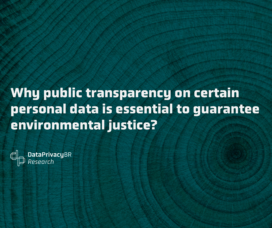
Why public transparency on certain personal data is essential to guarantee environmental justice?
Between 2022 and 2023, Data Privacy Brasil developed the project Environment and Information: contesting the political instrumentalization of LGPD in Environmental Regulation which focuses on the intersection of digital rights and environmental policies.
-
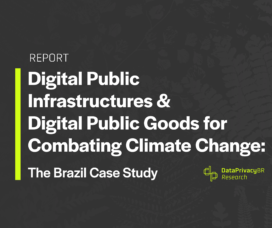
Digital Public Infrastructures & Digital Public Goods for Combating Climate Change: The Brazil Case Study
Data Privacy Brasil, with the support of the Digital Public Goods Alliance (DPGA), launches a new report that aims to analyze the integration between Digital Public Infrastructure (DPI) and Digital Public Goods (DPGs) as tools to combat climate change.
-
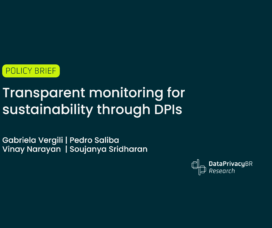
Transparent monitoring for sustainability through DPIs
In this new publication, researchers Gabriela Vergili, Pedro Saliba from Data Privacy Brasil, Vinay Narayan and Soujanya Sridharan from Aapti Institute, discuss the “Transparent monitoring for sustainability through DPIs”.
Veja Também
-

Why public transparency on certain personal data is essential to guarantee environmental justice?
Between 2022 and 2023, Data Privacy Brasil developed the project Environment and Information: contesting the political instrumentalization of LGPD in Environmental Regulation which focuses on the intersection of digital rights and environmental policies.
-

Transparent monitoring for sustainability through DPIs
In this new publication, researchers Gabriela Vergili, Pedro Saliba from Data Privacy Brasil, Vinay Narayan and Soujanya Sridharan from Aapti Institute, discuss the “Transparent monitoring for sustainability through DPIs”.
DataPrivacyBr Research | Content under licensing CC BY-SA 4.0

